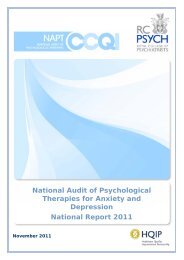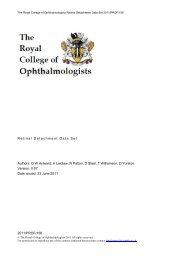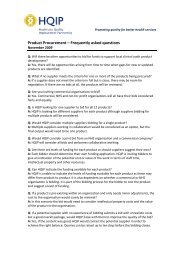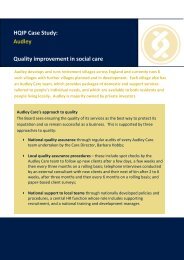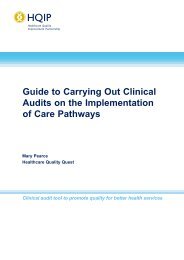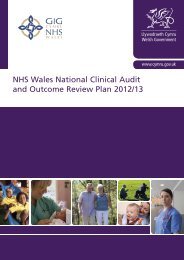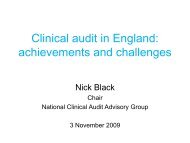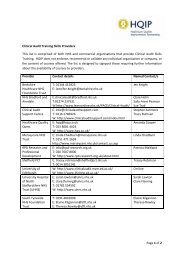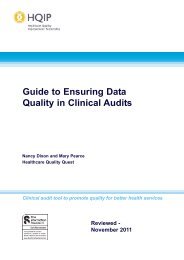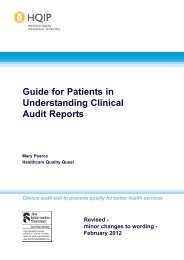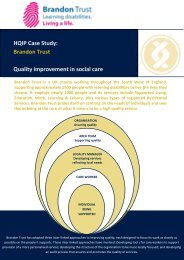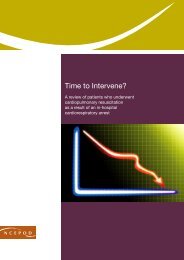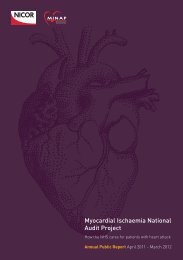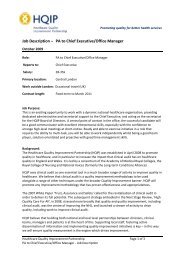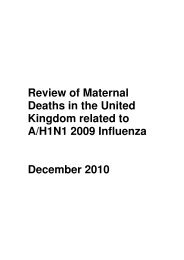Good Governance Handbook - HQIP
Good Governance Handbook - HQIP
Good Governance Handbook - HQIP
Create successful ePaper yourself
Turn your PDF publications into a flip-book with our unique Google optimized e-Paper software.
The Audit Commission 38 observed that some NHS boards in England appear to have<br />
become too trusting, with little constructive challenge or debate about strategic<br />
issues. A reason for this lack of challenge included the desire to present a united<br />
public face in public meetings. Challenge should not be seen as the preserve of nonexecutives<br />
scrutinising the executive team. Steve Bundred, Chief Executive of the<br />
Audit Commission said:<br />
“The NHS has, in many cases, been run on trust. But those who are<br />
charged with running our hospitals must be more challenging of the<br />
information they are given and more skeptical in their approach.<br />
Healthcare is inherently risky and complex, and assurance is not easy<br />
in the public or private sectors.”<br />
The Audit Commission found that:<br />
• board assurance processes are generally in place but must be rigorously<br />
applied<br />
• board members are not always challenging enough and<br />
• the data received by boards is not always relevant, timely or fit for purpose.<br />
Underlying the report was a sense that the board must create a culture where there is<br />
healthy debate. Independent members should not accept something is working just<br />
because a director says it is so.<br />
“No organisation can operate without a measure of trust among the<br />
key individuals. However, the larger and more complicated the<br />
organisation, the less the board can rely on such informal<br />
relationships and the more important it is for people to understand<br />
the system and what is done by others.”<br />
6.8 Legal redress & judicial review<br />
In the last resort, patients and staff can seek legal redress if they feel that NHS<br />
organisations have infringed the legal rights described in the NHS Constitution 36 . For<br />
patients and the public, this could be in the form of a judicial review of the process by<br />
which an NHS organisation has reached a decision.<br />
Judicial review is a process by which someone can challenge a decision of the<br />
Secretary of State or an NHS body, on the basis that it is unlawful. This right is derived<br />
from administrative law. It is not a right of appeal and is concerned primarily with<br />
how decisions are made, rather than the merits of the decision itself.<br />
To be entitled to bring a claim for judicial review, a person must have a direct,<br />
personal interest in the action or decision under challenge. There are time limits for<br />
making a claim.<br />
A decision might be unlawful if:<br />
38 Audit Committee, Taking it on Trust, 2009<br />
www.good-governance.org.uk 29



